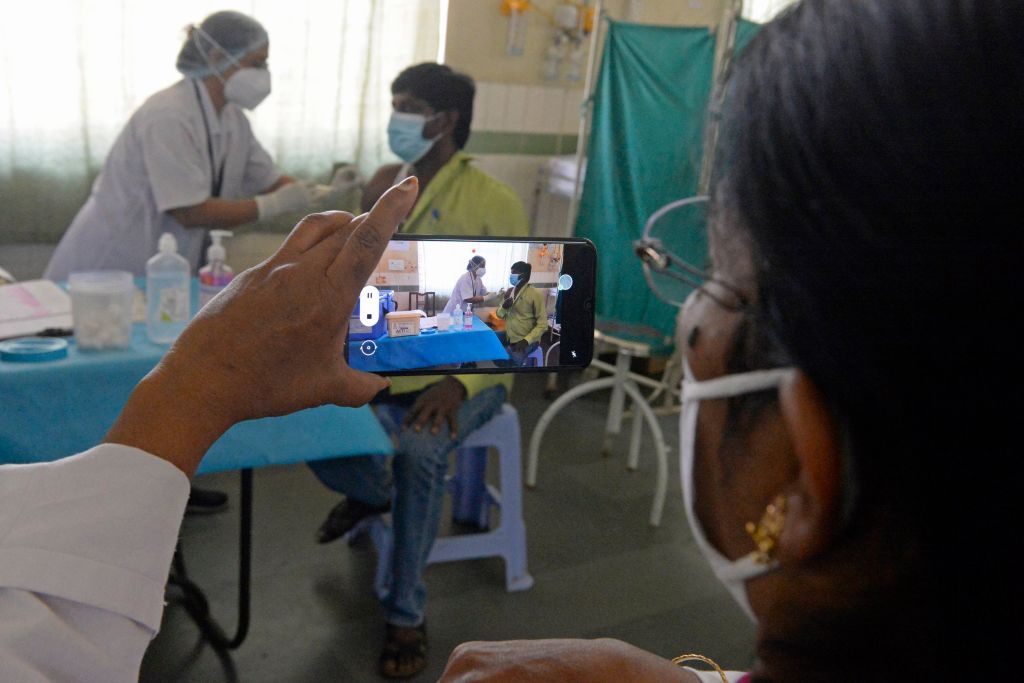- Sunday, February 23, 2025

By: Pramod Kumar
INDIA’s Covid-19 crisis has exposed a wide digital divide, prompting many grassroots groups to focus on connecting poorer women without internet access to healthcare and financial support, or simply to help them keep in contact with loved ones.
The deadly second wave in the country, which peaked in April and May, left the health service on its knees.
In desperation, many turned to social media to track down hospital beds, oxygen cylinders, and medication, while others used coding skills to grab rare vaccine slots on registration websites.
India has one of the world’s widest digital gender gaps, with only a third of women owning a mobile compared to two-thirds of men, according to a 2018 Harvard University study.
But the divide is far greater for poor rural women, who are also much less likely to have digital literacy skills, according to Chetna Sinha, founder of Mann Deshi, an organisation that works to empower rural women.
Mann Deshi, which has given phones to rural women in western Maharashtra’s Satara district, said the devices have helped them survive financially during the pandemic.
After receiving her phone, Jyoti Devkar, 25, quickly learnt how to create a Facebook page for her computer parts shop in Banpuri village, post photos of her products, and accept online payments.
When she was hospitalised with Covid-19 some 15 km (nine miles) from her home, Devkar was able to keep her business going while recovering.
“I stayed in touch with my family back home on video calls,” she said. “But staying in a ward full of patients was distressing so I continued working. It kept me sane.”
Across the country, many social enterprises like Mann Deshi – companies, nonprofits and community groups that aim to make the world a better place – have rapidly pivoted their operations to plug gaps in the national response.
Other social enterprises have set up hotlines to help marginalised communities in areas where the nearest health centre may be far away.
“Sometimes women call and hang up, scared to talk about themselves,” said nurse Mansi Dwivedi, who monitors the HelloSwasti helpline run by public health nonprofit Swasti Health Catalyst.
Grassroots organisations are also providing women with oxymeters to monitor oxygen levels, connecting them to diagnostic facilities, and paying for tests – a prohibitive cost for many – to ensure those infected get the right treatment.
Nonprofit SEEDS, which helps India’s poorest people, has established Covid-19 care centres for marginalised communities and a hotline to help them source everything from hospital beds to oxygen.
SEEDS co-founder Manu Gupta said women had often been brought to hospital later than men, by which time their symptoms were more serious.
With India requiring people to register for their jab via a smartphone app or website, Gupta urged the government to work with civil society and community organisations to reach those lacking access to technology.